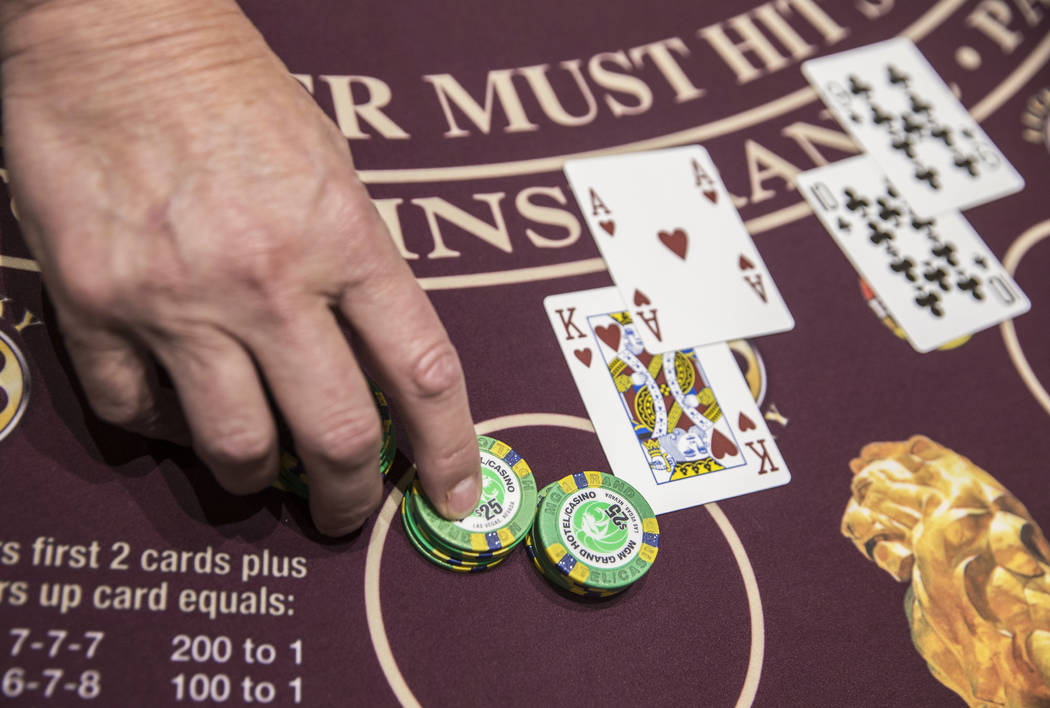Responsible gaming strategies a challenge for Japan, experts say

Japan is on the verge of becoming the second largest gaming market in the world behind Chinese gaming enclave Macau.
The biggest concern on the horizon is whether proper responsible gaming strategies will be in place when it happens.
Speakers and panelists addressed the issue Tuesday on the second day of the four-day International Conference on Gambling and Risk Taking sponsored by UNLV’s International Gaming Institute at Caesars Palace. About 650 people from 34 countries are attending.
With the introduction of integrated resorts and casinos in Japan by 2025, Japan expects integrated resorts to become a $20 billion-a-year annual resource for the economy. Revenue projections are based on the Las Vegas strategy of developing non-gaming attractions.
Osaka is expected to be the first city to develop an integrated resort because the city also plans to host the World Expo in 2025.
Problem gambling in Japan
In a panel moderated Tuesday by new UNLV distinguished fellow in responsible gaming Alan Feldman, panelists acknowledged that compulsive gambling disorders will continue to be one of the biggest concerns as the Japanese government approves the construction of up to three resorts across the country. Several Las Vegas-based companies are in the running to be awarded concessions to build resorts in Japan.
One of the biggest problems, according to Moritoshi Kido of the Osaka University of Commerce, is that most Japanese people fail to acknowledge that there’s any potential for addictive gambling behavior among citizens because they don’t believe there are any gambling problems now, despite the presence of a lottery, sports wagering on horse, bicycle, boat and car racing, and ubiquitous pachinko parlors.
Speaking through an interpreter, Kido said there are more than 9,200 pachinko parlors across Japan with nearly 4 million pachinko machines in play.
Pachinko machines are like skill-based pinball games that often are used as gaming devices.
Kido’s research has led him to conclude that there’s a relationship among Japanese people between alcoholism, suicide and problem gambling, yet there are few resources being made available.
Government leaders are focused on establishing “gambling addiction countermeasures,” but aren’t providing any funding to publicize treatment options. Leaders instead are counting on the successful resort operators to publicize the need for responsible play.
Panelist Keiji Kobara, a practicing psychiatrist who directs the Mental Health and Welfare Center in Shimane, Japan, said problem gambling is being addressed as a mental health disorder. Through an interpreter, Kobara said patients are taught to avoid problem gambling through thought-craving avoidance and thought-stopping techniques, imparting some of the teachings of Buddhism. Some of the techniques include deep breathing for relaxation, breath counting and meditation, he said.
The U.S. gaming industry commits more than $300 million to responsible gaming annually, supporting education, training and rehabilitation programs across the country, according to the American Gaming Association, which represents the $261 billion U.S. casino industry.
Contact Richard N. Velotta at rvelotta@reviewjournal.com or 702-477-3893. Follow @RickVelotta on Twitter.